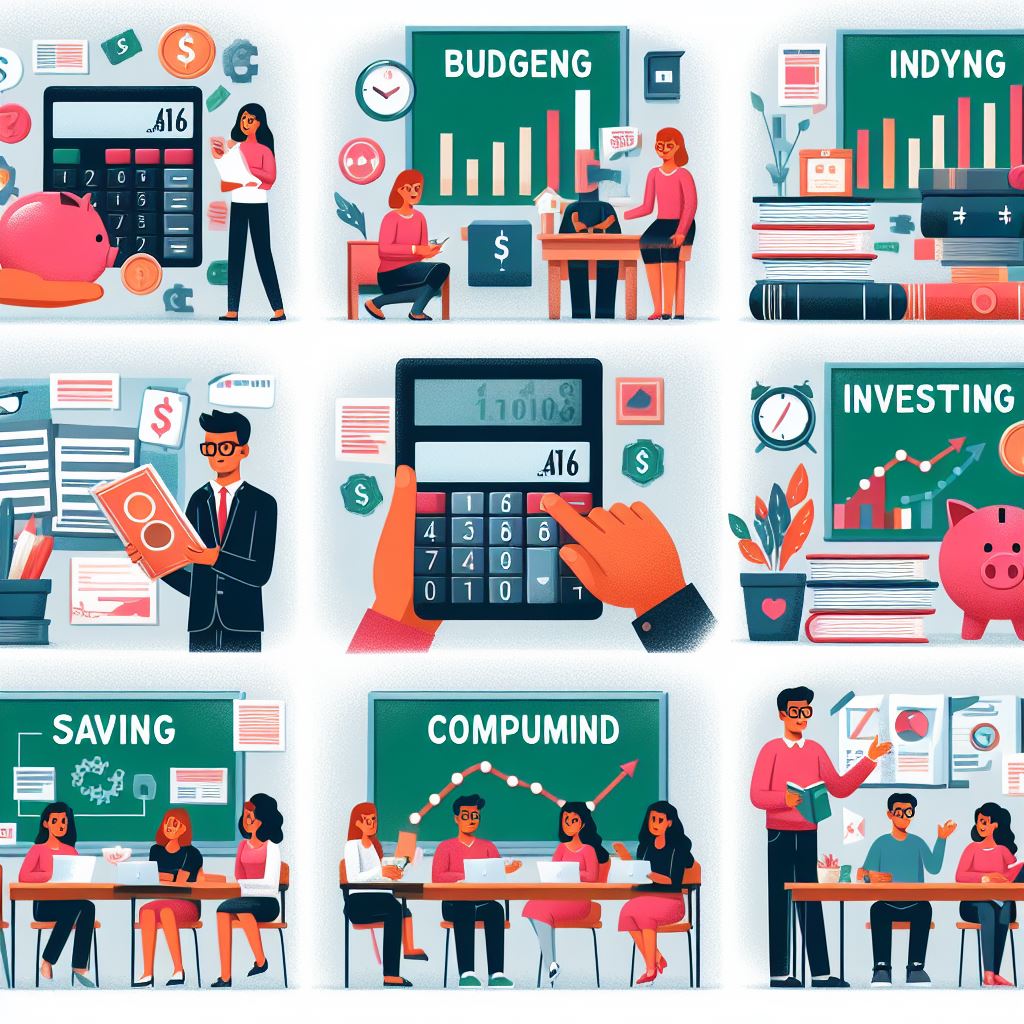Financial literacy involves several key steps aimed at enhancing your understanding and management of personal finances. This plan can guide you to make informed decisions, achieve your financial goals, and secure your financial future. Here’s a structured approach to building your financial literacy plan:
- What is Your Current Financial Situation?
- What are your monthly incomes?
- What are your monthly expenses?
- What is your Net Worth: income – expenses = net worth
- Budget Analysis: Track your income and expenses to identify spending habits and adjust where necessary.
- Set Clear Financial Goals
- Short-term Goals: These could be saving for a vacation, building an emergency fund, or paying off small debts.
- Long-term Goals: Examples include saving for retirement, buying a home, or funding a child’s education.
- Educate Yourself on Key Financial Concepts
- Budgeting: Learn how to create and stick to a budget.
- Saving and Investing: Understand different saving accounts, stocks, bonds, mutual funds, and retirement accounts.
- Credit and Debt Management: Know how credit scores work, how to manage debt, and strategies for debt reduction.
- Taxation: Familiarize yourself with tax basics, how to file taxes, and tax-advantaged accounts.
- Insurance: Understand the types of insurance (health, life, auto, homeowners) and their importance in financial planning.
- Create and Implement a Financial Plan
- Budget Creation: Use tools or apps to create a budget that aligns with your financial goals.
- Emergency Fund: Aim to save 3-6 months’ worth of living expenses.
- Debt Reduction Plan: Consider methods like the debt snowball method.
- Investment Strategy: Based on your risk tolerance and time horizon, decide how you want to invest.
- Monitor and Adjust Your Plan Regularly
- Review Periodically: Set a schedule to review your financial plan and progress towards your goals (e.g., monthly, quarterly).
- Adjust as Needed: Life changes, such as a new job, marriage, or unexpected expenses, may require adjustments to your plan.
- Continue Learning
- Stay informed by reading books, attending workshops, and following reputable financial news sources and blogs.
- Think about how compound interest works, how to balance income and expenses.
Remember, the most effective financial literacy plan is one that is tailored to your personal financial situation and goals.











One thought on “Financial Literacy”